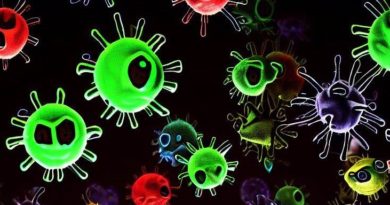Pfizer pushes ahead with plans to push coronavirus vaccines on younger children, including toddlers and infants

Pharmaceutical company Pfizer is moving ahead with its plan to provide its Wuhan coronavirus (COVID-19) vaccines to younger children, including toddlers and infants as young as six months old. This despite growing reports of adverse events among teenage and young adult recipients, including heart inflammation and blood clots.
On May 10, the Food and Drug Administration (FDA) gave the Pfizer COVID-19 vaccine emergency use authorization for use in children between the ages of 12 and 15.
The FDA is pushing for COVID-19 vaccinations for children as young as possible even though coronavirus infections are significantly less common among them. Should the rare infection occur, people under 18 years old are less likely to experience a severe illness and have a survival rate of over 99.9 percent. (Related: FDA grants Pfizer coronavirus vaccine emergency use authorization for under 16-year-olds; mass vaccinations of children may begin immediately.)
The Centers for Disease Control and Prevention (CDC) has attempted to justify the vaccination of children and scare parents into getting their kids the vaccine. The agency has stated that children infected with the coronavirus can still pass on the virus to others.
Despite the statements from the FDA and the CDC about the need to vaccinate children and how safe it is, Pfizer’s own trials paint a different picture.
Last month, the pharmaceutical corporation released a fact sheet describing the results of one of its clinical trials on children. Here, it gave COVID-19 vaccines to 12- to 15-year-olds.
In the trial, 1,097 children received two doses of the Pfizer vaccine, and 1,078 were given a placebo. Of the children who received the vaccine, four out of five experienced side effects including fatigue, fever, joint pain, headaches and vomiting. In nearly half of these children, the side effects were considered moderate to severe.
Despite the clear trial results showing the immense number of adverse effects in children, Pfizer is still pushing ahead with its trials in children. On Tuesday, June 8, the company released details showing how its experiments with kids have supposedly progressed. The company is now moving forward with another trial to study the effects of giving younger kids lower doses of the vaccine.
Pfizer and its partner, German biotech company BioNTech, claim that the vaccine trials in children prevented infections and did not lead to “intolerable side effects.”
The two companies have also admitted to conducting an early trial on 112 children between six months old and 11 years old. The children were divided into three age groups: ages five to 11, two to five and six months old to two years old. The children were then given 10, 20 or 30 micrograms of the vaccine, depending on their age group. The parents of the children in the youngest age group were also given the option to receive just three micrograms of the vaccine.
Pfizer pushing ahead with larger trials on children below 12-years-old
Pfizer’s 112-person trial pales in comparison to the larger trial it has already begun. This larger trial will cover the same three age groups Pfizer had in its previous study. It will involve 4,500 supposed volunteers from the United States, Spain, Poland and Finland.
Around 3,000 of the children will receive differing amounts of the active vaccine. The remaining 1,500 children will receive a placebo, but their parents will be given the option to give the children the active vaccines if it is authorized within six months of the children’s participation.
The company claims the trial will evaluate the safety of the vaccine as well as the immune response it supposedly promotes.
Pfizer plans to request full federal authorization for its COVID-19 vaccine by September or October to provide the vaccine to children between the ages of five and 11. It will then ask for the same authorization for children younger than five later in the fall.
Learn more about the plans of big pharma companies like Pfizer to vaccinate more children at Vaccines.news.
Sources include:


